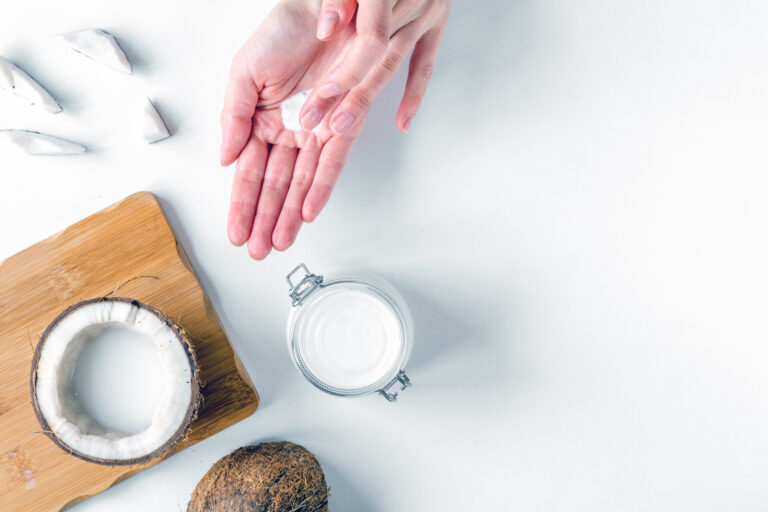NAD+, the main ingredient in Innovative Medicine’s proprietary Nadovim supplement, does more than just support brain health and function. This multi-tasking molecule is also a valuable ally in protecting our cells from tumors by helping to neutralize free radicals and reduce oxidative stress, among other vital functions.
The Role of NAD+ in the Body
Nicotinamide adenine dinucleotide (NAD+) is an essential coenzyme that is found in not only every human cell, but within all animal, yeast, bacteria, and even plant cells.
All living cells depend on NAD+ to carry out hundreds of enzymatic reactions. NAD+ plays a critical role in almost all biological processes that take place in our body ranging from metabolism and energy production to detoxification and vital brain functions. It is also an all-star team player in DNA repair.
It is such a mighty molecule that some scientists have even gone so far as to discuss it in relation to the highly sought-after ‘Fountain of Youth’. NAD+ is key to living a long and vivacious life, and when levels plummet in congruence with other internal and external factors, a whole array of ailments can arise, including cancer.
It is this powerful role of NAD+ as a detoxifier, antioxidant, and DNA repairer that makes it so valuable in fighting reactive oxygen species.
Causes of NAD+ Depletion
As we age, NAD+ levels naturally decline, and by the time we are in our middle ages of life, our levels have decreased by half of what they were in our youth. For this reason, many age-related diseases and chronic conditions manifest in part because of insufficient levels of NAD+.
Our lifestyles can also contribute to NAD+ decline. Chronic stress, poor diet, lack of exercise, and drug and alcohol abuse have been linked to NAD+ depletion, as well as other environmental influences.
The Dangers of Reactive Oxygen Species & Oxidative Stress
Free radicals, also known as reactive oxygen species (ROS), are “waste substances produced by cells as the body processes food and reacts to the environment. If the body cannot process and remove free radicals efficiently, oxidative stress can result. This can harm cells and body functions,” according to a definition given by Medical News Today.
Reactive oxygen species in “high concentrations can be hazardous to the body and damage all major components of cells, including DNA, proteins, and cell membranes. The damage to cells caused by free radicals, especially the damage to DNA, may play a role in the development of cancer and other health conditions,” according to the National Cancer Institute.
Our bodies are inundated with ROS from sources like exposure to environmental pollution, smoking, radiation, and toxic chemicals; consumption of refined and processed foods, artificial sweeteners, and trans fats; tissue trauma due to inflammation and injury, and even from high-stress levels and mental distress. And if we don’t have enough antioxidant support, oxidative stress will take place.
How Oxidative Stress Leads to Health Problems
The damage caused by oxidative stress has been strongly linked to cancer. In fact, oxidative stress, which can then go on to damage DNA, is one of cancer’s dearest friends. For this reason, and many others, antioxidants are essential to help mitigate the onslaught of free radicals that our bodies are regularly exposed to.
But before we raise our pitchforks and torches to ROS, it must also be noted that when their numbers are in balance, their roles are quite benevolent. The right amount of ROS is imperative to the proper function of the cardiovascular system and immune system. They are prime regulators of redox reactions, which are important for proper signaling processes to take place. ROS are also involved in the regulation of the natural cell cycle and programmed cell death functions.
Interestingly, cancer researchers are currently looking into utilizing ROS’s role in programmed cell death as part of a potential cancer cure.
If ROS levels are too high, oxidative stress occurs, but if the numbers are too low, a range of other pathologies can occur, including cancer. So, when cancer appears in the body, some sort of imbalance is likely taking place.
The Role of NAD+ in Homeostasis
Our body is always working toward homeostasis. A balanced body is a healthy body. And while our body is capable of incredible feats to obtain this desired balance—actions and processes that take place beyond our control and consciousness—what we put in our body and expose our body to, has a tremendous influence on the way this scale tilts.
Of course, uncontrollable and unchangeable factors such as aging and genetics also come into play when cancer is on the table. But now that we know that NAD+ levels naturally decline with age and that this powerhouse molecule is capable of helping to neutralize reactive oxygen species, reduce oxidative stress, and help repair damaged DNA, it seems like a no-brainer that supplementing our insufficient NAD+ levels would be highly beneficial.
While our body completes hundreds of processes and cycles every day without us giving those astonishing accomplishments a second thought, it is imperative that we support those life-supporting actions as opposed to hindering them. We are active participants in our body’s life-long quest for balance maintenance.
Supporting it through diet, supplements, sleep, exercise, and the avoidance of well-known cancer-causing substances is something we have control over. Cancer and other diseases have a really challenging time proliferating when balance is maintained. NAD+ is a vital part of that balance.

* Disclaimer: The statements made in this article have not been evaluated by the Food and Drug Administration. Any products or treatments mentioned are not intended to diagnose, treat, cure, or prevent any disease. Please consult a licensed medical practitioner for medical advice. At Innovative Medicine, we believe in transparency. We want you to know that we may participate in affiliate advertising programs pertaining to products mentioned herein.





